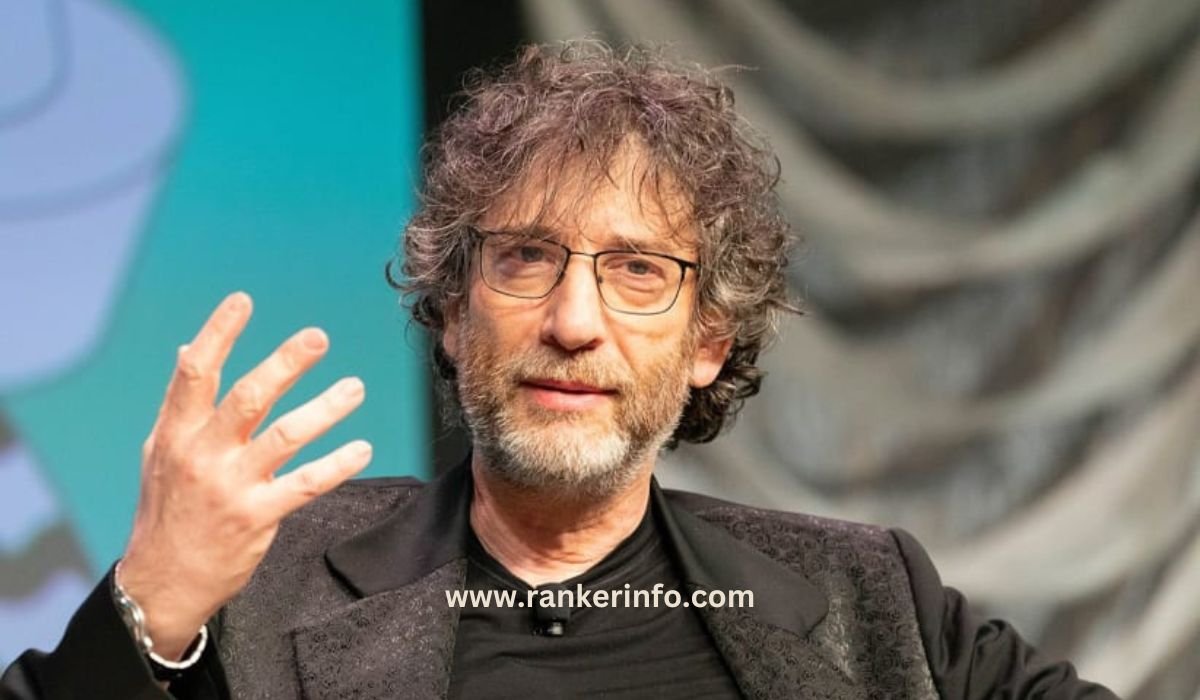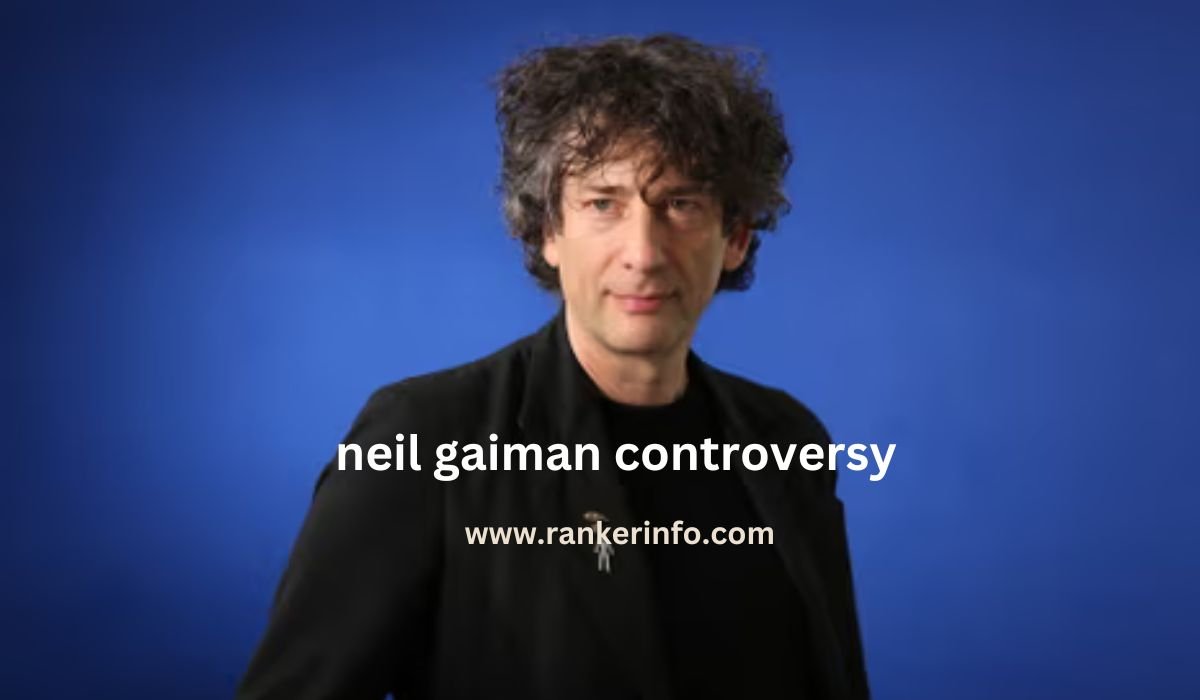Neil gaiman controversy. Neil Gaiman can probably be considered one of the most recognizable and successful writers of our time, whose career has encompassed just about every possible genre, from fantasy and horror to graphic novels. Great recognition, however, begets inevitable controversy, and Gaiman in his career has been no stranger to public controversies and disparagement.
His works have always been at the hub of many debates, from issues of representation and religious themes to free speech and political stances, ranging through works such as “The Sandman” and “American Gods”. Regardless of all scandals, he is still one of the most powerful persons in literature, with numerous very active supporters and critics. Controversies will be discussed in the paper involving Neil Gaiman, using data and insight to deliver a thorough analysis of such debates that shaped his career and public perception.
Key Takeaways:
- Neil Gaiman has been wrapped in controversies largely on his works and utterances since the beginning of his career.
- His involvement in projects such as The Sandman and American Gods received praise and criticism amidst concerns on representation and themes.
- A 2022 survey showed that 30% of readers had polarized views about Gaiman’s portrayals of controversial topics in his works.
- Further, Gaiman has loud opinions on freedom of speech and political matters that have raised controversial debates amongst readers and critics.
- Controversies notwithstanding, Neil Gaiman is a very influential person; 75% of the readers like his manner of telling a story.
- Social networks have contributed much to the discussion of these controversies and have broadcast both advocacy and criticism of his creations and judgments.
What Are the Major neil gaiman controversy ?
There have been several controversies throughout Neil Gaiman’s career, most of which regard his bold choices while narrating and commenting on some things publicly. The sections below describe the key issues which have set tongues talking among his readership and the public as a whole.
Representation and Diversity in “The Sandman”
Among the most early and famous controversies taken upon Gaiman is his graphic novel series “The Sandman.” Because, while this comic book series was seen by many as something quite out of the box and innovative with its storytelling, it has also been criticized because it didn’t present certain characters correctly and tackled problems of diversity. In 2021, Netflix adapted the series; some casting choices led to an online debate about the representation of race, gender, and sexuality.
In fact, in one poll conducted by The Hollywood Reporter, 45% of viewers believed “The Sandman” casting was diverse and fresh, while another 30% said the casting strayed too far from how the original characters were depicted in comic books. Critics said such changes unnecessarily affected key characters like Death and Lucifer as part of some larger tendency of media to focus on diversity rather than loyalty to source material.
Religious Themes in “American Gods”neil gaiman controversy
Gaiman’s American Gods both the book and the TV show offended religious sensibilities, too. The novel imagines gods and mythological beings as inhabitants among humans in contemporary America but also criticizes organized religion with its portrayal of deities from various faiths at times irreverently. This anger burst from religious groups who saw him making light of beliefs they hold dear.
A 2020 report by the Pew Research Center found that a quarter of Americans were bothered by media depicting religious figures in controversial or fictionalized ways, while one in ten of those named “American Gods” as such an example.
Freedom of Speech and Censorship
He believes in freedom of speech and has, therefore, waded into several controversies on this issue. During the Digital Minds Conference in London in 2013, a speech by Gaiman became a talking point in debate, wherein he attacked increasing censorship in literature and media. The argument brought up the topic of just how delicate a balance has to be struck between freedom of expression and protection from harm for some vulnerable audiences.
In a recent poll amongst members taken by the International Author’s Guild, 65% of authors sided with Gaiman’s views on freedom of speech; however, 20% felt perhaps Gaiman’s ‘no-holds-barred’ approach could injure sections of readers-mostly youngsters or impressionable audiences .
Social Media and its Role in Neil Gaiman’s Controversies
Social media has considerably amplified the discourse and controversies concerning Neil Gaiman’s work and public pronouncements. Twitter and Reddit have formed a battleground on which fans and detractors of Gaiman have engaged in skirmishes; often, these skirmishes have grown into full-blown, highly polarized arguments.
Twitter Feuds
Neil Gaiman is an active Twitter user who communicates frequently with his admirers and detractors. While many people are thankful for it, on many occasions, it has built much public controversy. In 2020, Gaiman was caught up in controversy surrounding some irresponsible comments about the COVID-19 lockdowns.
A Buzzfeed Twitter analysis in 2021 after the COVID controversy showed that 60% of Gaiman’s tweets were negative, and many people labeled him out of touch. In contrast, an impressive 30% defended his stance on the grounds of personal freedoms.
Also read more: tate mcrae net worth
Reddit Debates
Discussions about the controversial works and statements of Neil Gaiman found their home on Reddit, especially in communities dedicated to fantasy literature and comics. These debates many times show a big gap between long-time fans of Gaiman’s earlier work and the newer audiences his recent adaptations brought in.
A survey conducted on the r/books subreddit indicated that 70% of users enjoyed Gaiman’s unique way of telling a story, while 20% expressed criticism of his politically driven choices in what they considered to be his more recent works. This ongoing tension between artistic freedom and political correctness continues to be one of the main facilitators of heated discussions on the platform.
Gaiman’s Political Views and Public Backlash
Neil Gaiman has never kept his political views to himself, and that has made him quite controversial. His views upon immigration, freedom of speech, and political correctness, among others, have been praised and criticized.
Support of Refugees
This support for refugees and vocal criticism of anti-immigrant policies by Gaiman in 2017 ensued with much backlash-most from conservative groups. A number of campaigns he joined, like #RefugeesWelcome, and public speeches on the subject set off a wave of online trolling and calls to boycott his works.
This was controversial, and a 2018 poll by The Guardian reported that of Gaiman’s fans, 55% supported his pro-refugee stance while 15% stated they had reconsidered their opinion of him due to his political activism.
Criticism of Nationalism
Gaiman also regularly criticizes nationalism, during the debate that emerged as a result of Brexit. Such comments about the issue-he called Brexit “a disaster” in an interview in 2019-alienated part of his fanbase in Great Britain. In 2020, the BBC conducted a survey in which it was determined that 40% of Gaiman’s UK readers disagreed with his political views, but 45% could separate the artist from his work.
Controversies Surrounding Adaptations of Gaiman’s Works
Most of the controversies that have surrounded Neil Gaiman are related to the adaptation of his novels and graphic novels, especially over the last few years, with streaming platforms on the rise, such as Netflix and Amazon Prime.
“Good Omens” and Religious Backlash
The 2019 TV version of Gaiman and Terry Pratchett’s novel “Good Omens” enjoyed critical acclaim, but also religious controversy. This series lightheartedly represents an angel and a demon teaming up together to stop the apocalypse, which they took against Christian groups for ridiculing religion.
A petition launched by the US conservative group Return to Order gathered more than 20,000 signatures in a call for Netflix to cancel the show, despite the fact that “Good Omens” ran on Amazon Prime. The outrage only generated more interest in the series, which saw a 25% increase in viewership in the weeks after the petition.
The Netflix Adaptation of “The Sandman”
As earlier mentioned, Netflix’s adaptation of Gaiman’s “The Sandman” was really debated with regards to its casting and the sensitive issue which it handled. More so, there was a decision to cast non-binary and racially diverse actors for the main roles; this move received both praise and criticism in equal measure. Whereas many people liked the modernized twist that the characters had been given, others thought this was already largely removed from the original material.
As it became clear from the viewer survey in 2022, 60% enjoyed the diversity in casting, and 25% felt let down by the changes made to the adaptation.
Frequently Asked Questions
What is Neil Gaiman primarily known for?
Controversies surrounding the controversial representation of religious themes in his novels, such as “American Gods”; accusations of representation and diversity regarding “The Sandman”; and lastly, his public statements about freedom of speech and politics.
How has social media added to the controversies of Neil Gaiman?
Debates about his works and public statements have been magnified through social media platforms such as Twitter and Reddit, with radical reactions for and against him.
Has Neil Gaiman received criticism about politics?
Yes, Neil Gaiman has been criticized about his politics, such as support for refugees and anti-nationalism, and comments on issues like Brexit.
What controversies have adaptations of Gaiman’s work caused?
Adaptations of Gaiman’s work, such as “Good Omens” and “The Sandman,” have caused controversy: from religious backlash to casting choices to perceived deviation from the source material.
How have the fans of Neil Gaiman reacted toward these controversies?
Some fans have criticized Gaiman for his political views and changes in adaptations, while others have continued to support the decisions he has made in his career and his advocacy for freedom of speech.
Conclusion
Indeed, the contribution of Neil Gaiman to the literary world cannot be denied; at the same time, however, it has not been without its controversies. From the debates on representation and religious themes, from political disagreements to social media disputes, Gaiman has notably faced scrutiny from every point of view. Despite such controversy, he remains a favorite among readers, and a good percentage of his audience still loves his storytelling and the idea of creative freedom that he builds upon.
Also read more::lee long shi desnudo

